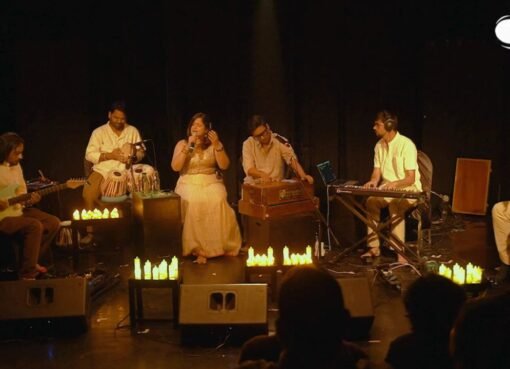Lucky Ali’s ‘Suno’: The Album That Rewrote Indian Pop in the 90s

In 1996, when Bollywood dominated India’s music charts, a quiet storm arrived with a guitar, curly hair, and a voice like no one else. That storm was Lucky Ali, and his debut album Suno became a landmark moment in Indian pop music. It wasn’t flashy. It didn’t try too hard. But it hit people right in the gut and it hasn’t really left since.
The album was released under the label BMG Crescendo and featured eight tracks, with O Sanam leading the way as its crown jewel. But before we get to the music, let’s rewind to the story behind Suno.
Lucky Ali, whose real name is Syed Aslam Ali, wasn’t new to the spotlight. He was the son of legendary Bollywood comedian Mehmood and had already lived a few lives. He’d been a horse breeder, an oil rig worker, a farmer. Music was always there, but fame wasn’t his chase. That probably explains the raw honesty in Suno. It wasn’t made to fit into any mold.
The album’s breakout track, O Sanam, became an instant classic. But here’s the thing. It didn’t follow the typical verse-chorus formula or rely on big instrumentation. It was mellow, haunting, with a simple guitar riff and Lucky’s voice carrying the weight of nostalgia and heartbreak. The music video, shot in Cairo’s deserts and featuring Egyptian ruins, added a visual layer that made it unforgettable. This wasn’t just a song. It was a feeling.
Every track on Suno had its own character. Songs like Sunoh, Pyaar Ka Musafir, and Dekh Bhi Le had minimalistic production, introspective lyrics, and a laid-back vibe that stood in sharp contrast to the glitz of Bollywood. It felt like someone was singing to you, not at you.

The album was produced by Mikey McCleary, a New Zealand-born composer who perfectly matched Lucky’s understated energy with crisp, emotionally intelligent arrangements. Their collaboration would become a long-standing one, continuing into later albums like Sifar and Aks.
What really made Suno click was its timing. It arrived at a moment when Indian audiences were just beginning to explore independent music outside of film soundtracks. MTV India and Channel V were picking up steam. Suddenly, here was a singer who felt more relatable than any movie star. No drama. Just good music and soul.
Lucky Ali’s Suno didn’t just launch a career. It cracked open a space in Indian music for honesty, vulnerability, and a slower pace. It paved the way for other indie artists who didn’t want to chase trends. Even now, decades later, O Sanam is still on playlists, still quoted in captions, still tugging hearts.
The success of Suno made Lucky Ali a household name. But he never chased the limelight. He continued to make music on his own terms, always slightly off the grid. And maybe that’s why we still listen. Because it doesn’t sound like an era. It just sounds like truth.
One thought on “Lucky Ali’s ‘Suno’: The Album That Rewrote Indian Pop in the 90s”
- Pingback: Abhishek Mishra Sparks Support Across Music Community



Leave a Comment